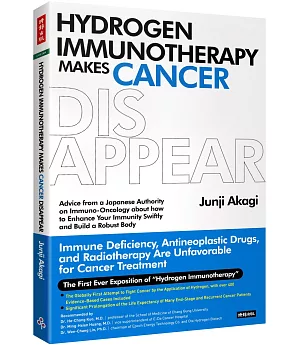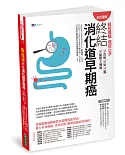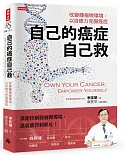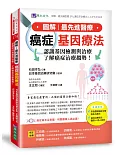Foreword
“Goodness! The tumor in the lymph nodes was gone! We actually have just started the treatment two weeks ago...” As a specialist in immuno-oncology, I have been treating cancer for over three
decades. During these thirty years, various cancer therapies have been developed with the advances in the field of medicine. Although they may be helpful to some patient groups, we are still
lacking a single treatment that has been recognized to be effective to most people.
I have been attempting day after day, as a doctor, to mitigate the suffering and to prolong the lives of my patients by all means. In my career, I have never seen any patient experiencing
such a speedy recovery in just two weeks. Frankly speaking, when Ms. K.H, 68 years old, came in to our hospital two weeks ago, I even thought to myself, “this lady may not be able to leave this
place alive.” That’s exactly how serious her condition was.
The recurrence of her breast cancer had metastasized to her bones, liver, and cervical lymph nodes, generating a substantial mass on the right side of her jaw. I knew from my previous
experience that she was in a critical condition, but I wanted to save her still. This desire prompted me to try on something that was introduced to me not long ago—hydrogen, something that is
ubiquitous in nature and present in us all.
The swelling of the lymph nodes was gone after the application of hydrogen for two weeks.
Ms. K.H had experienced a breast cancer recurrence and metastases to cervical lymph nodes, resulting in her swollen jaw. After adding hydrogen to the earlier treatment, the swelling
disappeared rapidly within two weeks.
In my usual practice, I use immunotherapy to treat cancer and my treatment protocol basically consists of hyperthermia therapy, low-dose antineoplastic drugs, and Opdivo® (the medicine used
in cancer immunotherapy). In Ms. K.H’s case, by the addition of hydrogen, I was deeply surprised to see the remission of her hypertrophic right submandibular gland in just a short period of two
weeks.
Since January 2015, Ms. K.H had continued to take antineoplastic drugs, such as Avastin®+paclitaxel, Avastin®+Abraxane®, and Halaven® for treatment of her recurrent breast cancer, but the
value of the tumor marker CA 15-3 had been increasing steadily. Until July 6, 2016, the value rose up to 1630 accompanying her lymph node swelling. This soaring trend is specific to patients
with breast cancer. Normally, the value of the tumor marker CA 15-3 should be lower than 31.3. An abnormal level this high may be reflective of the potential presence of multiple metastases to
bones and liver. Nevertheless, in two weeks after receiving the combined treatment of immunotherapy and hydrogen, the right submandibular gland hypertrophy had disappeared and Ms. K.H was
discharged in good health. On August 3, approximately one month later, the CA 15-3 value had decreased to 1132.
Before I started treating Ms. K.H, I was introduced by one of my friends to a hydrogen generator, and it was suggested that “hydrogen is useful in cancer treatment.” I was not persuaded
initially, but after I realized that hydrogen does not result in potential explosion hazard and is beneficial to the human body in many ways, I couldn’t help thinking, “perhaps this is
something worth trying.” Afterwards I witnessed Ms. K.H’s case, which brought me to an idea that “hydrogen may become one of the great promises for cancer treatment in the future.”
Consequently, I have begun to perform ongoing research and established hydrogen immunotherapy at last. This is the first attempt in the world to treat cancer with hydrogen, and we have
successfully cured more than 400 patients to significantly prolong the remaining lifespan of many end-stage or recurrent cancer patients. In addition, I published my article in the British
academic journal, Oncology Reports, and received considerable attention globally. In December 2018, I gave a speech about “the advent of the application of immunotherapy for advanced
cancer—combined immunotherapy” at the 6th World Integrative Medicine Congress held in Shanghai, China (where 2,500 doctors participated). In May 2019, a group of 40 doctors from China attended
the event hosted by the Society for Integrative Medicine Japan at Aichi Medical University. Also, in mid-June of the same year, I departed for Guangzhou, China to attend a relevant event.
Written in the above-mentioned background, this book documents the details of the unprecedented hydrogen immunotherapy in the world. While the standard of care, including antineoplastic drugs
and radiotherapy, has failed to cure cancer and becomes a hopeless option by physicians, I wish to inform the distressed or exhausted patients and families of a potentially promising treatment
approach, the mechanism and case reports of which are covered in this book. I think, even if you have been told, “there is nothing we can do for you now,” or asked, “are you willing to consider
palliative care?” it would be truly a blessing to learn that there is still hope of survival.





















